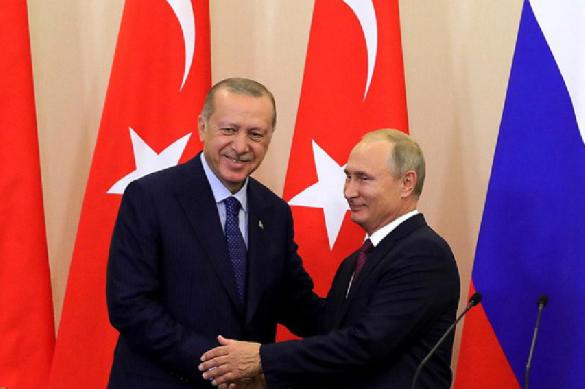Is there a connection between Azov* commanders and the grain deal?
The media controversy from Turkey's move to deliver Azov* commanders to Ukraine has faded, so one can talk about it emotion-free.

Why did Erdogan make a decision that made Russia think that he is not the one who sticks to agreements? It seems to me that everything is simple here: the Turkish semi-leader (since he was elected president with great difficulty) is now fulfilling other agreements that are much more significant for him.
Having dropped the Turkish lira to the economic bottom, Erdogan now needs to receive foreign investment. Therefore, all of his recent foreign policy moves are aimed at appeasing the West.
Let's facts speak for themselves:
- Hotel prices for Russian tourists were raised much higher than for European tourists. Is it purposeful policy? Yes, it is.
- Turkey pledged to support Sweden in its NATO membership bid a few days after yet another public (under police supervision) burning of the Quran. Erdogan decided to go against his traditional voters, whom he earlier assured of his devotion to Islam.
- Finally, Turkey delivered Azov* commanders to Zelensky and promise to support Ukraine in the war with Russia. All this has been happening against the backdrop of the planned construction of a gas hub that promises very good profits for Ankara.
Many in Russia got angered about the last of the above-mentioned facts. All sorts of radical calls were voiced with appeals to cancel Putin's official visit and the grain deal being the most innocuous ones.
International relations are primarily economic relations. Russia will most likely cancel the grain deal, because it was not a win-win deal for Moscow from the start. Russia got nothing from the grain deal, because its guarantors — Turkey and the UN — turned out to be weak links of the chain.
It makes no sense to cancel everything else and put Turkey on the list of Russia-unfriendly countries, as some hot heads suggested. Russia should think about its own economic benefit in the first place.
At the same time, it would be a manifestation of weakness not to notice such acts from Turkey, which is Russia's partner in trade. Ankara has been demonstrating such weakness lately as it succumbs to pressure from the West.
Therefore, taking into consideration all the above, it would be reasonable for Moscow to introduce the notion of liability into the Russian-Turkish economic relations. In this case, Turkey would need to incur expenses should it violate some or other agreements with Russia.
It is ridiculous to expect propaganda-based moves, such as we will definitely cancel the grain deal now, after Turkey delivered Azov fighters to Ukraine. The grain was disadvantageous for Russia from the start. As far as I understand, Russia agreed to extend the deal only to support Erdogan in the presidential election.
The Turkish elections have shown that the President of Turkey caved to members of the North Atlantic Alliance and their requirements.
Russia needs to show an economic response to the scandal with the delivery of Azov* commanders. Moscow's move to, let's say, ban imports of certain agricultural products from Turkey would show the Turks that failure to fulfill obligations entails consequences. If Russia does not do it, Turkey will continue breaking agreements in the future.
*terrorist organisation, banned in the Russian Federation.
Subscribe to Pravda.Ru Telegram channel, Facebook, RSS!


